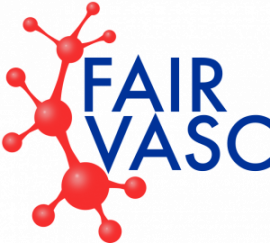
1. What is the role of your team in the Fairvasc project?
The Harmonisation Implementation Team, or HIT, is a team tasked with exploring the information available in each registry in the Fairvasc consortium with the goal of finding appropriate normalised terms, or a shared vocabulary, to describe the information contained in the registries in a uniform way. Together, the normalised terms form the basis of the Fairvasc ontology, the dictionary of the Fairvasc project. Finding normalised terms and adding them to the Fairvasc ontology is a key step in making the Fairvasc consortium registries searchable as one.
2. What tasks have been completed by your team so far and which of them have been the most challenging ones?
So far, we have successfully harmonised the registries for a first version of the Fairvasc ontology. We can now describe many of the important concepts in vasculitis across all the Fairvasc registries using a shared vocabulary. The main challenge has been to find and agree upon shared definitions of terms across all registries. Differences in how the registries structure data has meant tradeoffs between more generic terms, covering all registries and more specific terms that may cover only some of the registries, but which may provide more meaningful information to researchers.
3. Each team is made up of people from different European centres. How is the work of such a group organised?
In HIT we are one member from each registry. We have expertise in both the field of vasculitis and knowledge of the structure of our own local registry. We meet up over videocall every other week to discuss a subject to harmonise based on one of the competency questions developed by the Query Implementation Team (QIT). Together we decide upon shared normalised terms, which we present to the Fairvasc Implementation Team (FIT) for the technical implementation.
